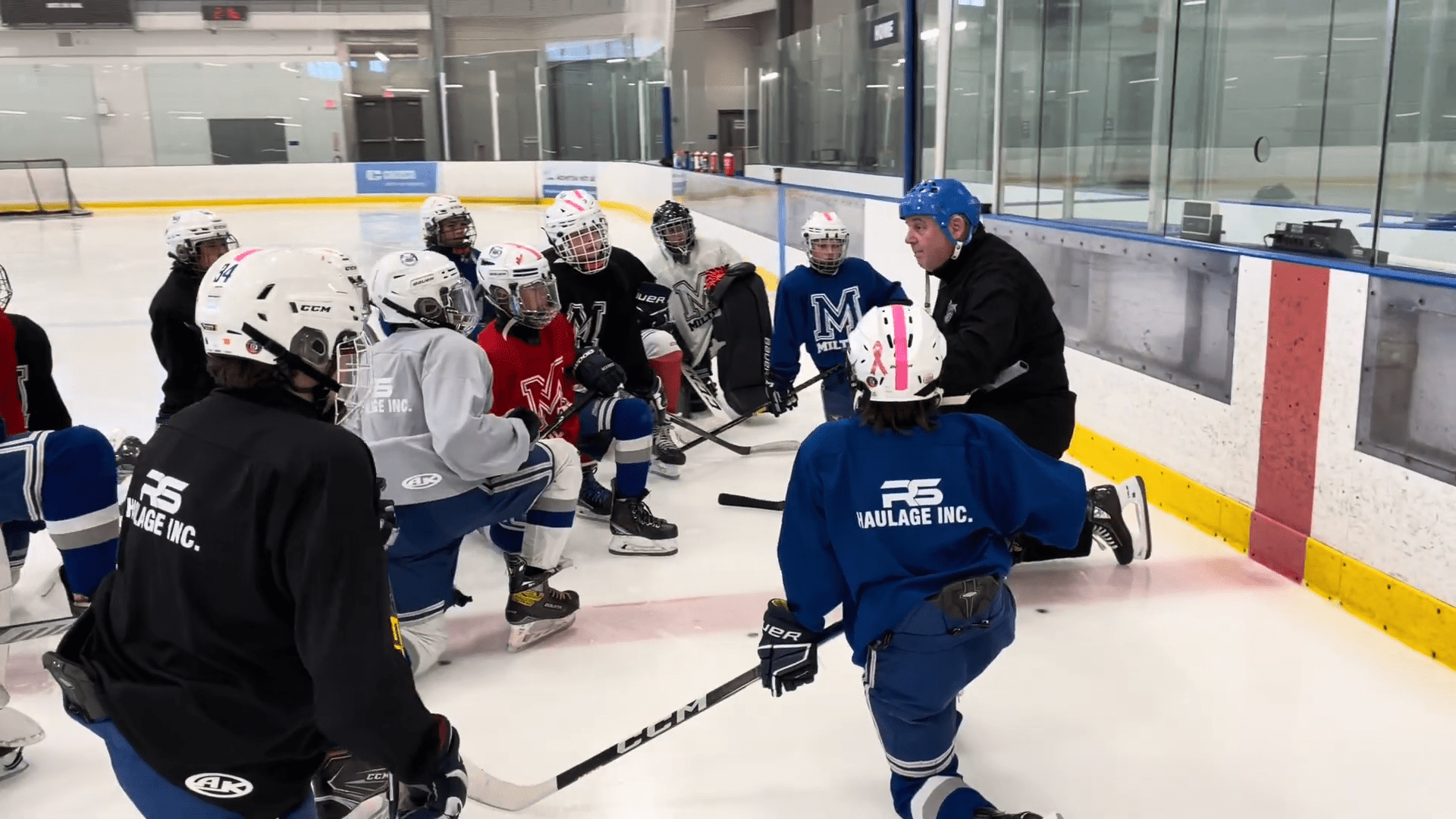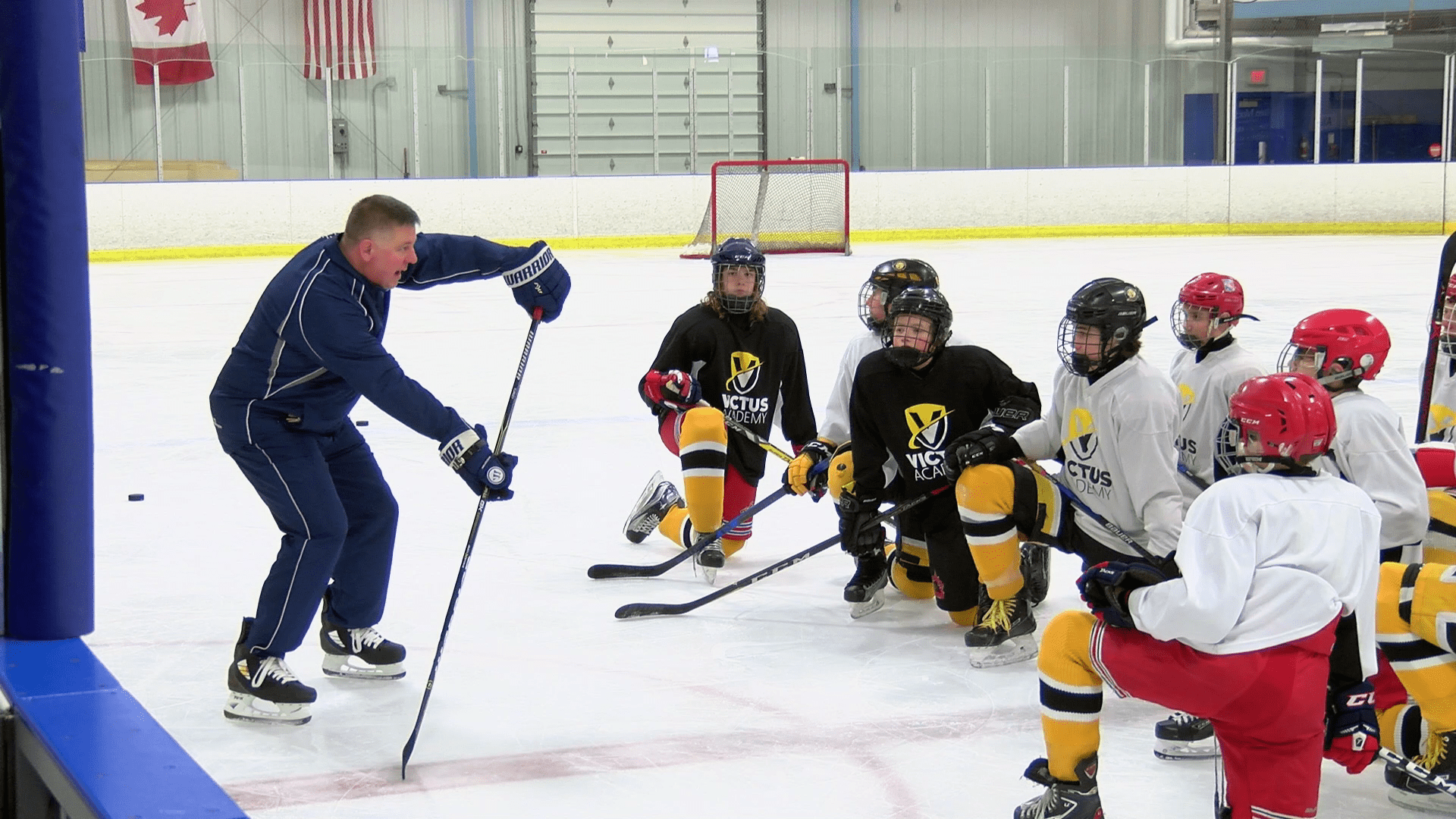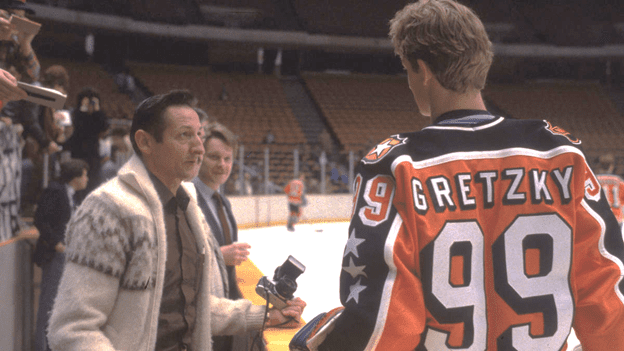A mental disorder is an affliction recognized in behavioural or mental patterns which may cause stress or impair personal functioning. Mental disorders are often persistent, and many produce no visible signs to others. Some examples of mental health disorders are:
- Generalized Anxiety Disorder, described by the Anxiety and Depression Association of America (ADAA) as “persistent and excessive worry about a number of different things”
- Panic Disorder, characterized by the ADAA as spontaneous panic attacks and subsequent constant fear of an upcoming attack
- Social Anxiety Disorder, defined by the ADAA as intense anxiety or fear of being judged, negatively evaluated, or rejected in a social or performance situation
Sound awful? That’s because they are. Living with a mental health disorder can be a nightmare. Worse yet, 1 in 5 adults experience mental illness each year.
So, then, consider your favorite NHL team. With twenty players to a team, that means an average of four of them suffer from some sort of mental illness. No sport is immune from the ill-effects of mental disorders, and athletes, although viewed by society as physically and mentally strong, aren’t immune either.
History of Mental Health Issues in Hockey
Apart from every other factor in one’s life which may contribute to a mental disorder, the sport of hockey puts a few additional stresses on its athletes:
First, almost every sport – but especially hockey – is a hyper-masculine environment. Even with modern steps toward gender equality, hockey is still a male-dominated sport. Any male hockey player, regardless of age, who has a difficult time conforming to said hyper-masculine environment could suffer devastating mental consequences in the future. This is especially true for hockey in the past, when mental disorders weren’t understood and were socially shunned.
Second, pressure from peers, coaches, and parents to perform well can lead to the development of a wide variety of anxiety disorders. This becomes truer the more pressure is exerted on the player and the more they dislike the sport yet feel that they need to keep playing it to meet the expectations of others.
Finally, athletes are generally viewed by society as adaptable, determined, and strong. These aren’t qualities commonly associated with someone who has anxiety, mood, psychotic, or eating disorders. They absolutely should be associated with someone who has mental disorders, and society is moving toward that level of acceptance, but we still have a long way to go.
These stresses have plagued hockey players ever since the intention of the sport, but only in the last few years have players become more comfortable openly talking about their mental health issues.
Before the 1950’s, mental health disorders largely weren’t recognized as proper afflictions. People with anxiety were told to “calm down” and people with depression were told to “lighten up,” as if those few, meaningless words would do anything to improve their situation. Since then, the focus on psychological health care gradually grew. More psychiatric institutions opened, and more doctors recognized mental health disorders as true medical issues.
It took society a bit longer to warm up to the idea of “mental health,” however. Only since the turn of the last century have people become truly comfortable accepting mental health disorders as a real thing. Even today, many people still aren’t comfortable recognizing and discussing mental health issues, especially in a sport like hockey. The problem is, they need to be comfortable discussing mental health. Staying silent literally costs lives.
In 2011, three former NHL players passed away as a result of mental illness. Wade Belak, Derek Boogaard, and Rick Rypien all unfortunately took their own lives due to some unresolved form of mental illness within four months of one another. More recently, former NHLer Todd Ewen took his own life as well in 2015.
Yes, the formerly mentioned players are all from the NHL; top-level players. However, some of the very same issues involved in their mental health disorders growing out of control apply to all hockey players. Minor hockey players, no matter what age, are exposed to the same problems as NHL players. With mental health being such a large potential problem in hockey, we must answer the call to action.
Steps Toward Positive Progress
In truth, the situation of mental health awareness in hockey is not so bleak. Along with society becoming more concerned with and aware of mental health, the sport of hockey and its players have taken many steps towards positive progress.
Kevin Bieksa, who was best friends with the late Rick Rypien, founded Foundrybc.ca, a website tailored to youth who face mental health issues. The website also tells Rypien’s story to help assure its visitors that seeking help for mental health issues is perfectly okay.
Shortly after, the NHL Players Association (NHLPA) launched the Hockey Talks initiative. Each Canadian hockey team selects a home game in February to use as a platform for spreading awareness about mental illness. The goal is to get people informed and talking about the numerous mental health disorders that affect people all over the world.
Even books like All the way (2014) by Jordin Tootoo and Boy on Ice (2014), the biography of the late Derek Boogaard, help raise awareness of mental health issues in hockey.
Here are some tips from Psychology Today about how you can do your best to help someone with mental illness:
- Inform yourself as much as possible about the illness being faced
- Talk about mental heath, don’t debate about it
- If someone is experiencing acute psychiatric distress (experiencing psychosis or feeling suicidal, for example), getting them to the hospital is the best choice
- Ask the person struggling with the mental disorder what will best help them
If only one lesson can be taken away from this article, it should be that mental health in hockey must be taken very seriously. Parents, teammates, and coaches should all be aware and understanding of mental health disorders and their potential issues. And, above all, everybody involved must realize that it’s normal and beneficial to discuss their issues with anyone they think can help.
Mental health disorders are very real and can have devastating consequences if left to fester. It’s our job as patrons and teachers of hockey to look out for those suffering from poor mental health and to help in whatever way we can. That way, we can keep a strong, happy hockey community focused on enjoying the game.







